Beloved Adelaide school principal Todd Murfitt fighting against early onset Parkinson’s disease
He grew up a sports-loving country boy, and for two years couldn’t make sense of the easy catch he put down during a Christmas backyard cricket game — sadly, it clicked when, aged 35, he was diagnosed with early onset Parkinson’s disease.
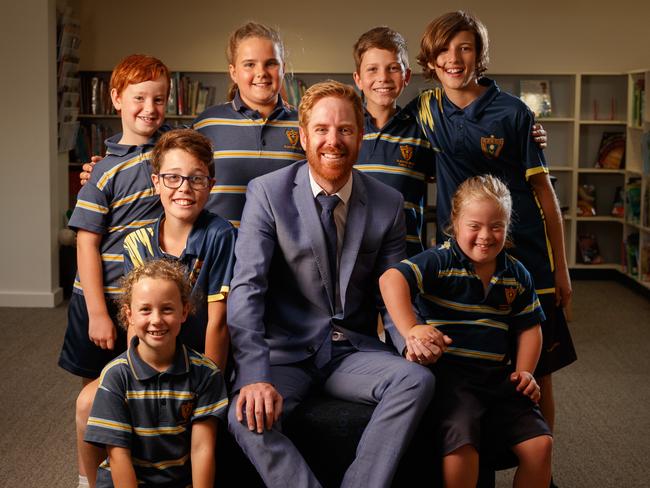
SA News
Don't miss out on the headlines from SA News. Followed categories will be added to My News.
Growing up a robust country boy from Whyalla, the third of four brothers, Todd Murfitt’s early life revolved around playing sport — the more competitive the better, a love he took into adulthood.
It’s the reason he found it odd when he missed an easy catch during a Christmas Day family game of backyard cricket.
But it would be two years until the popular Adelaide school principal had an explanation for the clumsy drop he couldn’t forget, when he was diagnosed, aged 35, with early onset Parkinson’s disease.
“It was really confronting because my identity was really always around co-ordination, I was very sporty … as kids we were typical country boys, we beat each other up, we were incredibly competitive,” he recalls of the day he received the devastating diagnosis.
With no family history of the chronic, degenerative neurological disorder, it was the furthest thing on the dad-of-two’s mind when he finally visited his GP, feeling worn down with flu like symptoms.
While at the doctor, he told her about a strange and random, one-off, tremor he’d experienced when typing up a school newsletter in his office weeks earlier.
“It was bizarre, a really horrid feeling in my arm and, at the time, I blamed in on too much coffee or stress but still knew I had to mention it,” he says.
“Really, I’d been feeling exhausted for a couple of years but always just put it down to the stress of work and we had two little girls at home,” the father of Ella, now 10 and Mia, seven, says.
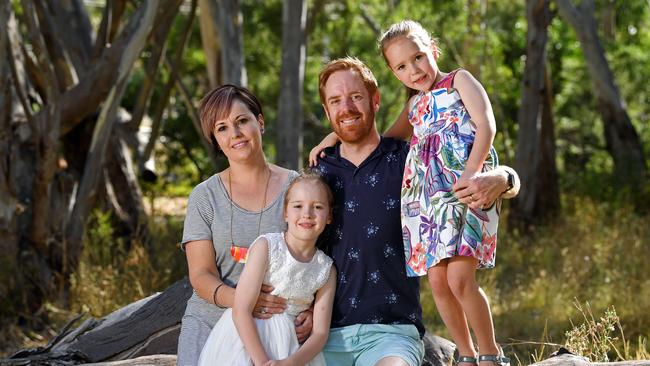
Perplexed when the doctor suggested he visit a neurologist, he didn’t see any great urgency in following up the referral, cancelling the first appointment with the brain specialist when it clashed with a graduation function at school.
He rescheduled only to discover the neurologist he was due to see was ill, and Dr Rob Wilcox, an expert in movement disorders would see him instead.
“He told me at the end of that consult he was 80 per cent sure I had Parkinson’s disease and suspected it as soon as I got up out of my chair,” Mr Murfitt says.
“During the consult he got me to walk, apparently my left arm was not swinging as it should — once he pointed it out, I noticed — we went through all of these different tests as well as a range of drawing and writing exercises.
“He got me to stand up and asked me to stay still and to retain my balance but when he pushed me, I just fell over … I thought, ‘this isn’t right, I am a big strong man’ — it was one confronting thing on top of another.
“I was sent for an MRI … and had the results within a week.”
Mr Murfitt recalls the emotional roller coaster that followed the 2017 diagnosis, saying all he really knew about the disease was from Hollywood actor Michael J. Fox’s experience with it.
“I was in shock — coming home from that first appointment, (the reality of the diagnosis) hit. I was driving home to Hahndorf from Flinders through the back roads and had to pull over … I kind of broke down and had a big cry,” he says.
“To be honest, my initial thoughts were, ‘I can just keep this to myself. If I can get away with just taking tablets, it will be easiest if I don’t tell (wife) Mandy and the girls and just see how it rides out’.”
However, his wife, also a schoolteacher, was having none of it.
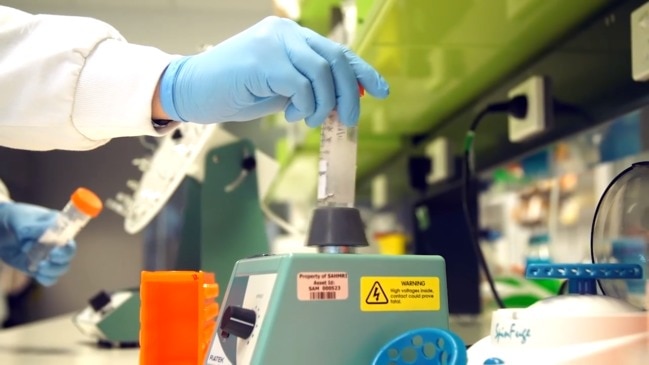
“Of course I wanted to know — I knew he’d had an MRI and worried it might be a tumour,” Mrs Murfitt, 39, says.
“I remember when I heard the word, (Parkinson’s), I just went into shock … it would have been a good two weeks, in which that word was just constantly in my brain, I would wake up and that word would be there.
“Then I went into massive denial, I think for a about a year and a half … I felt like I was going through the five stages of grief; denial, anger, bargaining, depression and acceptance, in different orders.
“It has only been probably in the last six months I’ve moved towards acceptance and learned anything else is futile … you have to come to that place, so you can move forward.
“You have to surrender, we can’t change it.”
There is no cure for Parkinson’s disease but the visible symptoms of it, which can include unusual stiffness in a limb or other body part, cramping and resting tremor — an uncontrollable movement affecting a limb — can be treated and managed with medication.
There are many other symptoms outsiders cannot see, including intense and constant pain, internal tremors, cognitive impairment and sleep issues, such as insomnia.
Sadly in Mr Murfitt’s case, the disease has worsened at a pace not anticipated.
“Young onset Parkinson’s is rare and it appears I have a mutant gene that is even rarer,” he says.
“If you are medicated well and you respond to the medication, you can hide a lot of the symptoms … initially I had an excellent response — I would be sitting in a meeting and my finger would start to twitch and I would take the medication and it would stop
“My neurologist was expecting five to 10 years of easy management but the progression has just kept going and going, (in my case it) has been crazy.
“One thing they say about Parkinson’s disease is, if you’ve met one person with Parkinson’s, you’ve met one person … every case is different.”
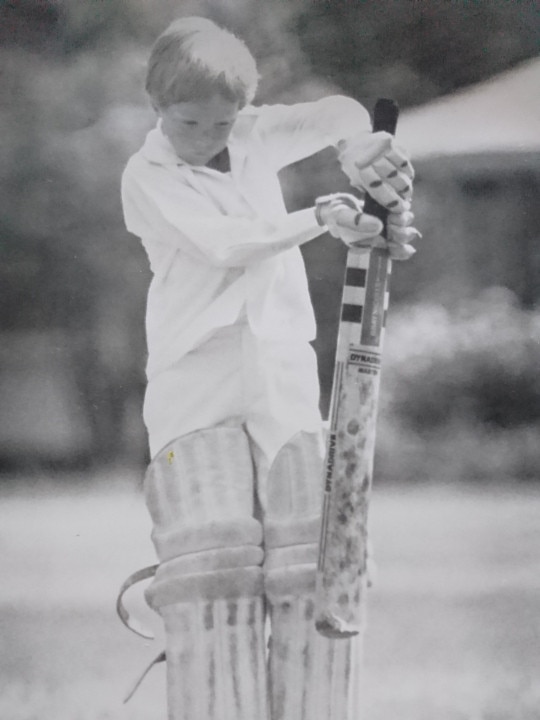
In fact, so accelerated has the progression been, it’s made it necessary to look at options beyond medication, in the form of brain surgery — or Deep Brain Stimulation (DPS).
The procedure, involving placing wire electrodes into the brain in specific areas that control movement to stimulate the parts of it that aren’t working, will be done as elective surgery, costing the Murfitts upwards of $30,000.
“This was an option we thought we might need to look at in 10 or 15 years time … financially, we weren’t ready for it to be now … we thought in 10 years time, we’ve had another decade of working, the girls will be finished school,” says Mr Murfitt.
The well-liked principal at Plympton’s St John the Baptist Catholic primary school will be required to remain awake during the surgery to answer questions and perform certain tasks to make sure the electrodes are positioned correctly.
It has its risks including, tragically, post-op suicide.
But the brutally honest and stoic couple see no choice.
“My secret little hope is that it will give me five minutes of stillness … a few minutes when I can forget I have this — five minutes of stillness will make it worth it,” he says.
“I have an internal vibration — tremor — that is always there but gets much worse as the medication starts to wear off, it gets to the point inside it is so vigorous, it can make my ears ring and my teeth kind of grind and chatter.
“Also, my hands start to lock up and that is quite painful, it is just like cramps. The pain is a constant, especially in my legs and arms and is, at best, a three … it is there all the time and hard not to think about it.
“It takes an awful amount of conscious effort, even with the medication, to just stand still. So, it is exhausting … as a group, we ‘Parkies’ don’t sleep — it is the pain, the tremors — it is like having an itch you can’t scratch.”
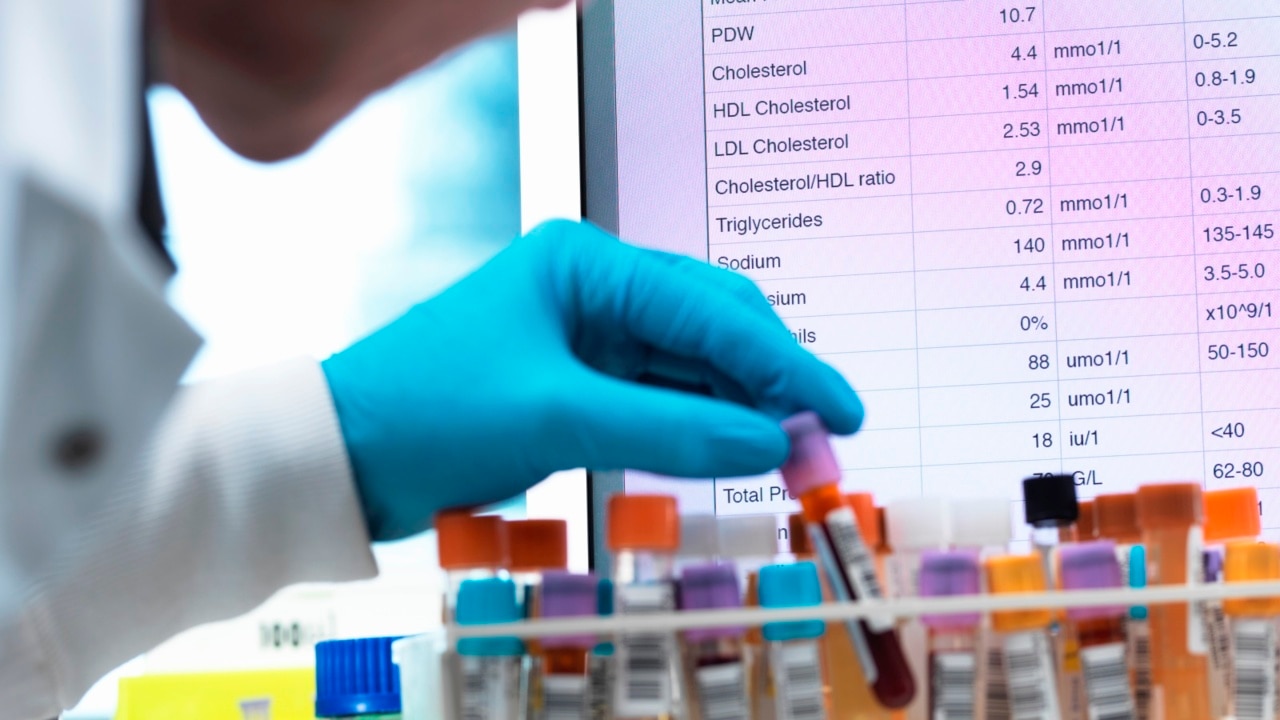
He says thoughts of the surgery itself, in which he will have his head shaved and scalp pulled back, don’t scare him but the lead up to the operation does.
“My biggest fear is the preparation, when I will come off the medication for a day … they want to see me at the worst, so they can see how effective the medication is at its best to help determine the settings for the electrodes,” he says.
“I haven’t seen myself at my worst, without medication in two years … I don’t want Mandy to see me like that.”
His beloved wife and partner of 15 years, tears up at his response.
“I don’t want him to be alone,” she simply says.
“If this is going to offer relief, even for part of the day for Todd, I can’t deny him that.
“It is not a cure and the disease will still progress … we just want quality of life, we are young, we want to maximise our time together with our girls. This is just an aid.”
The couple say they’ve found solace in their Catholic faith, family, friends and the school community, drawing “strength and courage” from others.
“My brothers have been amazingly supportive, they give me what I need … there’s no sympathy, there are jokes and humour and that is really helpful for me but if we need to sit and have a cry about it, we can do that too,” Mr Murfitt says.
“We try to not take for granted how well supported we are because it is that support that sees us through and gives us hope for the future,” Mrs Murfitt adds.
The dedicated educator says opening up about the illness has been important, and allowed him to stop trying to hide it.
“It felt like a weight had been lifted,” Mr Murfitt says.
“One of my real fears about disclosing to the school community was I didn’t want people to get the guilts or feel like they couldn’t talk to me, or complain about things.
“My job is my job, I would despise it if people were nice to me because of this — if I wasn’t able to do my job as well as I should, I would want to know that … there is nothing worse than a crappy school principal.”
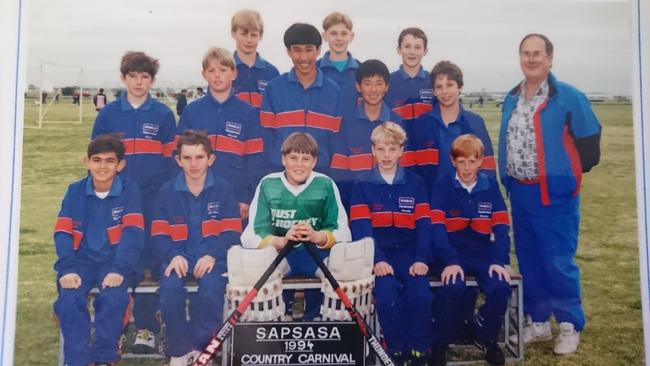
But he admits accepting help hasn’t been easy, including allowing a member of the school community to set up a Go Fund Me Page, to help raise funds for the operation — any excess money will be given to Parkinson’s SA.
“At first I didn’t like the idea, and there are still times I feel uncomfortable about it … I’ve never have really asked for help, or taken compliments well and that has been a real bit of self-improvement, I’ve learnt it is important to allow people the opportunity to offer support,” Mr Murfitt says.
He says he was particularly touched by the donation of a former student on the back of her 18th birthday.
“To show that kind of heart, is the ultimate reward for a principal,” Mr Murfitt says.
Expecting to be off work for about 12 weeks, from part-way through second term, he says the illness has changed his perspective on life — and priorities.
He has started a blog, Shaky Leadership, and hopes to raise awareness of the disease, to help others.
“At the end of the day this stupid disease dominates my life but I am OK with having it, I am OK with deteriorating … I see I am privileged to be in my position as I have a bit of reach and feel like I need to be an open book about it, so others can be comfortable with it,” he says.
It is a sentiment echoed in the words of Michael J Fox: “It sucks — I hate and I wish I wasn’t in this situation but it has been one of the great gifts in my life that I’ve been in a position to take me my view of the suckitude of it and merge it with other people’s view of the suckitude of it, to try and find an answer.”
CLICK HERE TO DONATE TO MR MURFITT’S GO FUND ME
PARKINSON’S — THE FACTS
IT’S estimated there are 8000 people in SA — and close to 100,000 in Australia — living with Parkinson’s.
ABOUT 10 per cent of these have young onset Parkinson’s, diagnosed aged 50 or younger. People with young onset Parkinson’s typically experience a slower disease progression but increased rate of dyskinesia (a side effect from medications) and more frequent dystonia (cramping and abnormal postures).
PARKINSON’S prevalence increases threefold after the age of 65.
THE disease is difficult to diagnose as there is no scan or no blood test. A neurologist makes a diagnosis based on medical history, a review of signs and symptoms and a neurological and physical examination. Blood tests, imaging and scanning are used to rule out other disorders.
IN hindsight, many people recognise they’ve had symptoms of Parkinson’s such as loss of smell, sleep disorders, writing getting smaller for quite some time.
PARKINSON’S SA provides support through diagnosis and can help manage symptoms, make referrals and connect people with others with the disease.
ON Sunday 7 April, Parkinson’s SA will host its largest annual family event and fundraiser, Parkinson’s Walkathon — a 1km walk around Unley,
starting at the Soldiers Memorial Gardens with registrations opening at 8:45am. Or, register online at everydayhero.com.au/event/PW2019
– Olivia Nassaris, Parkinson’s SA CEO


